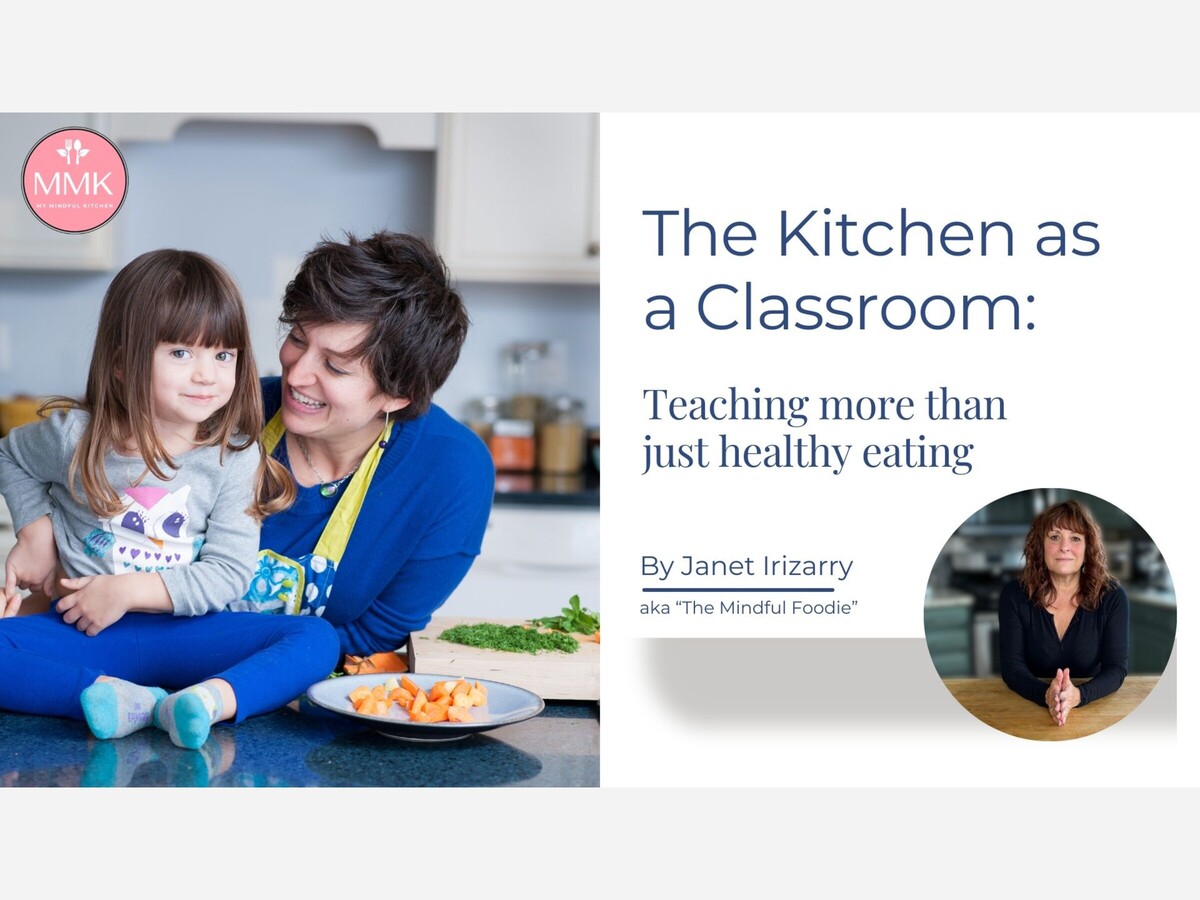Image

In a world of food abundance for many, it's easy for children to take the availability of food for granted. With fully stocked grocery store shelves and restaurant portions often exceeding recommended sizes, it's understandable that our kids may not always grasp the importance of food or treat it with the respect it deserves. However, by reframing our approach to food and involving children in the kitchen, we have the opportunity to impart essential values and life skills that extend far beyond healthy eating habits.
Engaging children in meal preparation not only teaches them about nutritious food choices and the importance of a balanced diet but also provides a platform for learning valuable lessons about gratitude, teamwork, and responsible consumption. The kitchen becomes more than just a place to cook meals; it transforms into a classroom where families can connect, share stories, and enjoy each other's company while fostering important life skills in children.
One of the most significant benefits of involving children in meal preparation is the opportunity to instill values of not being wasteful. By actively participating in the entire food process, from planning meals to consuming them, children gain an understanding of the effort and resources required to obtain and prepare food. This awareness fosters appreciation for farmers, food producers, and the environment while encouraging responsible consumption habits that benefit both individuals and the planet.
Cooking together not only provides a natural opportunity for open communication and dialogue but also serves as a wonderful way to get siblings to work together alongside each other and their parents. As family members work side by side in the kitchen, they can engage in meaningful conversations, share thoughts and feelings, and express themselves in a supportive environment. These shared experiences deepen family connections and create lasting bonds while teaching children the importance of teamwork and cooperation.

Beyond cooking, getting kids involved in planning meals and shopping can teach them about money too. When parents include them in deciding what groceries to buy and how much to spend, it helps kids understand how money works. This hands-on experience helps them learn the value of money and how to make smart choices with it.
In today's world, it's rare for children to witness physical transactions involving cash. Unlike my upbringing, where I accompanied my mom to the bank to cash my dad’s paycheck and then went grocery shopping with the actual money every week, the way things are done now is vastly different. In fact, I recently observed my grandson receiving a Peapod order at the door and expressing gratitude by saying "thank you universe." How can we recreate the “concreteness” I felt at the bank with my mother with our own children… without sacrificing the conveniences of modern technology?
Taking your children shopping at the grocery store and paying with your credit card or using virtual money like gift cards or payment apps is a great opportunity to teach this concreteness about money, whether physical or digital. It helps them understand where money comes from and why it's important. This lesson is often overlooked nowadays because digital payment methods make money seem abstract to kids—they don't physically handle it. Taking a moment to remind our kids that even though they can't hold it, spending money digitally is still significant is an important step toward teaching our kids to manage money effectively.
By involving our children in the entire process—from planning meals to shopping and cooking—we offer more than just lessons in nutrition and culinary skills. We create spaces where gratitude, teamwork, and responsibility flourish. It is an opportunity to strengthen family ties, nurture essential life skills, and empower our children to navigate the complexities of the world feeling confident and resilient.
